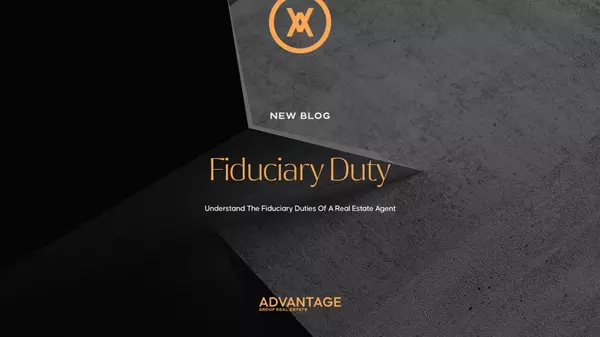Understanding the Fiduciary Duties of a Real Estate Agent in Ontario

Imagine embarking on a journey where your guide is sworn to protect your interests, navigate complexities, and safeguard confidential information with unwavering dedication. This is the reality for clients who venture into the real estate market in Ontario, guided by agents bound by stringent fiduciary duties. Agents are more than mere facilitators; they are guardians of trust, loyalty, and confidentiality, tasked with upholding your best interests in every transaction.
Their commitment is a legal obligation that ensures your real estate journey is secure, informed, and aligned with your aspirations. Let's explore the essence of these fiduciary responsibilities and understand why they are critical for every client-agent relationship in Ontario.
The Legal Definition of Fiduciary Duties
Real estate agents in Ontario are bound by fiduciary duties, which are legal responsibilities that require them to act in the best interests of their clients. These duties are based on trust, loyalty, and confidence, and they establish a high standard of care and professionalism. The legal definition of fiduciary duties includes the duty of care, the duty of loyalty, and the duty of confidentiality.

The Duty of Care in Real Estate
In real estate, the duty of care stands as a fundamental pillar, shaping real estate agent professional conduct and service quality. This duty compels agents to uphold a standard of reasonable skill, care, and diligence throughout their interactions and services provided to clients.
Ensuring Competence through Skill and Diligence
At its core, the duty of care is ensuring that real estate professionals conduct their work with appropriate skill and expertise. This means that agents are expected to have a solid understanding of the real estate market, including the nuances of buying, selling, and leasing property. They must apply this knowledge diligently to serve their clients' best interests.
Agents must conduct thorough research and data analysis to provide recommendations grounded in current market realities. This could involve compiling comparative market analyses, staying current on local market trends, and understanding the broader economic factors influencing real estate values. Their advice should be data-driven, precise, and tailored to each client's needs and circumstances.
Providing Accurate and Timely Information
Accuracy in information and advice is non-negotiable in the duty of care. Real estate agents are tasked with presenting clients with information that is not only current but also relevant and correct. Misinformation or oversight can lead to significant financial loss or missed opportunities for clients, which is why data accuracy, from property listings to legal disclosures, is essential.

The responsibility extends to ensuring that all communications, be they verbal or written, are clear, informative, and devoid of ambiguity. This clarity helps clients make informed decisions and understand their real estate transaction's risks, benefits, and implications.
Staying Informed on Industry Trends and Regulations
The real estate landscape moves quickly, with laws, regulations, and market trends constantly evolving. A real estate agent stays informed about these changes to provide clients with advice that aligns with the current market and adheres to the latest legal standards.
By maintaining an up-to-date knowledge base, agents can anticipate shifts in the market, adjust their strategies accordingly, and advise their clients on how to navigate the complexities of real estate transactions best.
The Duty of Loyalty in Real Estate
The duty of loyalty is a cornerstone of ethical real estate practice, requiring agents to prioritize their client's interests above their own. This commitment is key, forming the essence of the trust and reliability that should characterize every agent-client relationship.
Unwavering Commitment to Client Interests
Central to the duty of loyalty is the principle that real estate agents must always act in the best interests of their clients. This means that every decision and action taken by the agent should benefit the client, ensuring that their needs, goals, and preferences are the top priority. Whether it involves negotiating terms, selecting properties, or providing market insights, the agent should optimize the client's outcomes and safeguard their interests in every aspect of the transaction.
Navigating Complexities with Integrity
Real estate transactions can be complex, and loyalty requires agents to navigate these complexities with unwavering integrity. This involves a transparent approach to potential conflicts of interest, such as avoiding dual representation in a transaction unless all parties are fully informed and agree to it. The agent's role is to ensure that their professional conduct is beyond reproach, maintaining a clear division between their interests and their duty to their clients.

Ensuring Transparency and Fairness
The commitment to loyalty is also about maintaining a transparent relationship with clients, where honesty and good faith are critical. Agents are expected to communicate openly, providing accurate and timely information that enables clients to make informed decisions. This transparency is crucial in upholding clients' trust in their agents, ensuring that the advice and services provided are always aligned with the client's best interests.
The Duty of Confidentiality in Real Estate
The duty of confidentiality is a critical ethical obligation in real estate, emphasizing the importance of safeguarding client information. This duty compels real estate agents to maintain the privacy of their clients' details, ensuring that sensitive information is handled with the utmost discretion and security.
Protecting Client Information
Real estate agents are entrusted with confidential information, ranging from clients' financial statuses to their buying or selling motivations and negotiating tactics. This information is often crucial to the success of a real estate transaction and, if disclosed improperly, could compromise the client's position or the transaction's integrity. Therefore, agents must rigorously ensure that such sensitive details are kept secure and confidential, only shared with parties with a legitimate need to know and always within the boundaries of the client's consent.
Legal and Ethical Boundaries of Disclosure
While the commitment to confidentiality is important, there are circumstances where disclosure is mandated by law or is necessary under specific legal provisions. Real estate agents must be adept at navigating these scenarios, understanding when the law requires disclosure and ensuring they comply without breaching their ethical obligations. This careful balance requires a deep understanding of both legal mandates and the ethical framework governing their profession, ensuring that any disclosure is legally compliant and ethically sound.

Ensuring Information Security
In today's digital age, protecting confidential information extends beyond just personal interactions; it involves safeguarding digital data from unauthorized access or breaches. Real estate agents must implement reasonable security measures to protect their clients' information, whether stored electronically or in paper format. This includes using secure communication channels, ensuring documents are stored safely, and being vigilant about information-sharing practices, especially in an increasingly prevalent era of cyber threats.
The Significance of Confidentiality
The commitment to confidentiality is fundamental, not just as a legal or ethical standard, but as a cornerstone of clients' trust in their real estate agents. Clients must feel confident that their private information is safe and that their agent acts in their best interest, with discretion and integrity. By upholding the duty of confidentiality, agents reinforce the trustworthiness of the real estate profession and foster a secure environment where clients feel protected and supported throughout their real estate journey.
In summary, navigating the real estate market in Ontario is a secure and client-centred experience, thanks to the stringent fiduciary duties that govern real estate agents. Their legal obligations ensure that every step of your real estate journey is guided by a commitment to your best interests, providing a foundation of reliability and ethical service. Whether through meticulous care in their duties, unwavering loyalty to your goals, or the vigilant protection of your confidential information, real estate agents in Ontario are your trusted partners, ensuring a transparent, informed, and client-focused experience.
Categories
Recent Posts











"My job is to find and attract mastery-based agents to the office, protect the culture, and make sure everyone is happy! "

